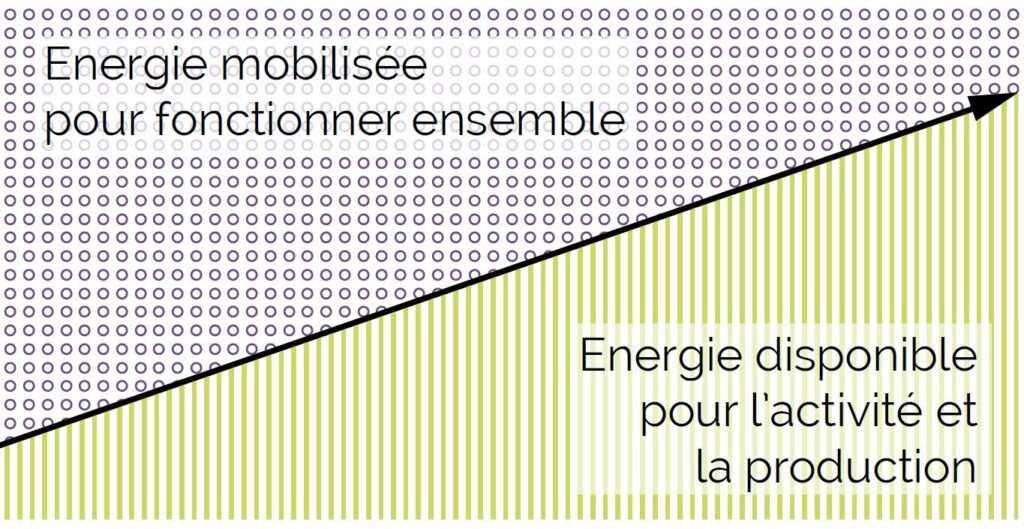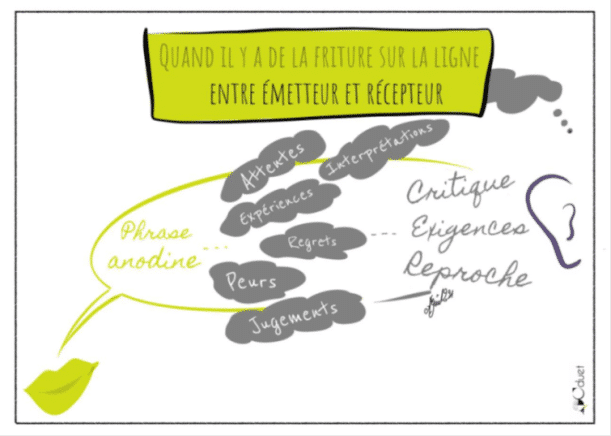Listening to your colleagues shows them that, even if you don't agree with them, you value their point of view. This ability to listen transforms professional relationships: it restores trust within teams, retains employees in jobs under pressure, encourages creativity and motivation... Non-Violent Communication (NVC) helps you to develop empathetic listening skills so you can be more effective at work. Anne-Gaël Érard, a certified NVC trainer, takes a closer look.

"We're not going to take every susceptibility into account, otherwise we won't make it!", curses a manager. "At the last meeting, I "lost it". I'm not proud of it, but enough is enough. I'd like everyone to take responsibility.one manager laments. These are just two examples, but they are representative of the complaints and reproaches that pollute everyday working life.
When I see the time and energy spent on anticipating and resolving relational difficulties in companies, but also the cost - both individual and collective - of damaged human relations, I say to myself that progress on this subject would be beneficial in many ways: for the people themselves, their involvement in the company, the company's overall performance...
Some professionals are becoming aware of this, as the director of a medico-social structure explains: "When I heard myself talking, I decided to take matters into my own hands. We agreed to set up NVC training for managers and professionals who wanted it.. She had just come from a meeting of her Social and Economic Committee. Everything had been said... or almost!
Developing team cohesion with NVC
The health crisis and teleworking are raising new questions about work relationships and team cohesion. How can we "team up" when collective time is reduced to its simplest expression? Whether you're working face-to-face, 100 % remotely or in hybrid mode, how can you maintain or develop employee motivation? How do you maintain or create a dynamic around joint work, and therefore a shared goal?
NVC to improve the quality of relations at work
"We all want to think about how we want to relate to each other".A nurse and an educator told me during a QWL intervention. Personally, I'm convinced that good relations at work are essential to the smooth running of a company.
Work includes both the energy required to function as a team and the activity of producing goods or services. The smoother relations at work are regulated in a climate of trust, the more energy employees devote to the company's production activity. If this is not the case, power struggles, loss of information, accidents in the workplace, sick leave, reduced commitment and attention, a variety of errors and latent conflicts are the result, turnover This affects research, manufacturing, quality, sales and, in general, all production activities.
NVC contributes to the company's activity

Boost motivation with NVC
Work really can be a place of expression and fulfilment, and therefore of motivation. Quality relationships make it easier to "work together" towards a common goal. It's a source of conviviality, mutual support, inspiration and motivation...
When work and relationships go hand in hand, it's not a question of whether you're a friend or a colleague. What's important is moving in the same direction while respecting who you are. Moving forward together requires sufficient motivation to overcome the pitfalls of the day-to-day reality of work.
Through dialogue and deliberation, NVC also contributes to a better match between what is known as prescribed work, i.e. the tasks required of the employee, and actual work, i.e. the activities carried out by the employee in response to the prescription.
La Non-Violent Communication in the service of leadership
Listening and empathy in the context of Non-Violent Communication also enrich managerial practices. "As a manager, developing my empathy has increased my credibility with my team. Listening to my colleagues doesn't mean that I agree with them, but that I consider them and value their point of view.says a pharmaceutical company executive.
The members of a single structure are interdependent. Communication is essential at every level of corporate life: QWL, R&D, HR, team cohesion. Effective communication facilitates the development of projects. It's a delicate alchemy to achieve. It's not a question of "playing with words" or knowing the "right formulas", but of understanding and taking everyone into account as they are. To put it plainly: only those who listen can understand.
Listening better with NVC: why? Why? How?
Empathetic listening means hearing what is important to everyone and what sometimes gets in the way of cooperation, in order to find satisfactory solutions. In other words, it means allowing everyone to contribute their point of view, so that appropriate proposals can emerge, decisions can be robust and the way things work can be calmed down.
Empathic listening takes into account verbal, paraverbal and non-verbal communication. "When I'm up on the gondola, my colleague and I communicate on sight about what we're doing. If something abnormal happens, he's immediately aware of it".says a high-voltage line technician. "When the buckets of molten metal arrive, you know at a glance what everyone is going to do".says a foundry operator.
Listening, yes... but how? Real listening is like tuning two different instruments: you need to listening to each other. What emerges from these different testimonies is that Non-Violent Communication offers an opportunity tolistening to each other, which is conducive to calm, high-quality work.
Although it helps to calm and smooth professional relationships, NVC does not work like a magic wand. Visit acquire the basics and give yourself the means to put them into practice go through training.
Training in Non-Violent Communication with ORSYS
The NVC training course offered by ORSYS is experiential. It enables participants to progress step by step towards integrating the principles of NVC into their daily professional lives:
NVC: level 1
In level 1 Reinforce your benevolence with Non-Violent CommunicationIn this way, participants learn to use their own indicators, in particular their emotions, to identify what motivates them to take action. This is the first step towards taking responsibility for their actions. They also learn to take care of themselves. For example, how to "receive" an "aggressive" message without taking it personally. They develop their benevolence, first and foremost towards themselves, but also towards their colleagues.
NVC: level 2
With the health crisis, informal time has dwindled and, with it, trust between colleagues. Some employees are now reluctant to express themselves in meetings, whether face-to-face or remote. They're afraid:
- exposing yourself to criticism, humiliating comments and accusatory responses - in public;
- or even suffer the repercussions during the individual interview.
Faced with a lack of empathy on the part of some, some employees are keeping a low profile. "When we used to see each other every day, we said things face to face, as we went along. Now, it's either video in front of everyone, or during the appraisal interview, as I discovered this year. I'm stuck, so I prefer to keep quiet".explained a department manager during a training session.

Level 2 training Developing empathy with Non-Violent Communication responds to this new challenge. The participant discovers and appropriates empathic listening which promotes assertive expression for quality relationships for quality work.
Creativity, enhanced customer relations, improved health in the workplace, employee retention in jobs in short supply...: the beneficial effects are felt at every level of the company.


